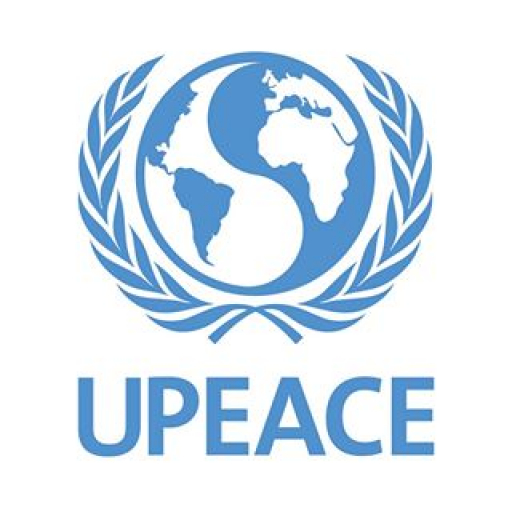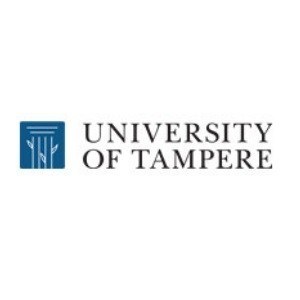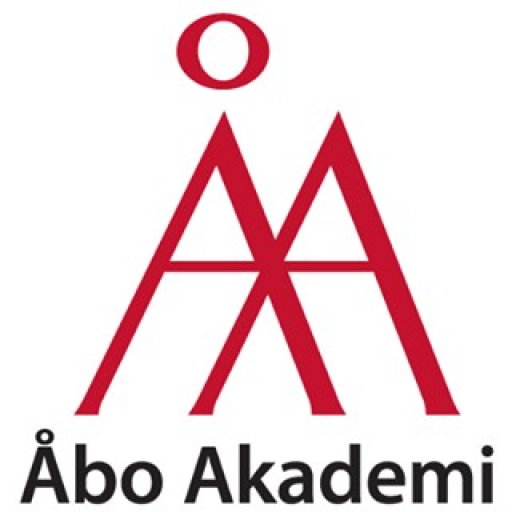Photos of university / #universityforpeace
The Master’s Degree in Media and Peace at the University for Peace is a comprehensive program designed to equip students with the theoretical knowledge and practical skills necessary to understand and address the complex relationship between media, communication, and peacebuilding. This interdisciplinary program aims to explore the pivotal role that media play in promoting conflict resolution, fostering social cohesion, and supporting sustainable development in diverse cultural and geopolitical contexts. Students will analyze how media can be used as a tool for peace advocacy, countering misinformation, and promoting human rights, while also examining the challenges posed by media manipulation, propaganda, and violence.
Throughout the program, students will engage with a broad curriculum that covers topics such as communication theories, peace studies, conflict analysis, journalism ethics, peace journalism, digital media technologies, and strategies for peacebuilding. The program emphasizes critical thinking, ethical considerations, and practical application through case studies, research projects, and field experiences. Participants will learn to develop effective communication campaigns, utilize new media platforms responsibly, and assess the impact of media interventions in conflict zones and post-conflict societies.
The faculty comprises experts in peace and conflict studies, media, communication, and international development, providing students with diverse perspectives and mentorship. The program is aimed at aspiring peace practitioners, journalists, media professionals, NGOs, government officials, and academics interested in the transformative potential of media in fostering peace and social justice. Graduates of this program will be prepared to work in international organizations, media outlets, NGOs, and governments, contributing to peacebuilding initiatives, conflict resolution processes, and the promotion of open, inclusive dialogue.
Offered in a flexible format that combines online and on-site learning, the Media and Peace program allows students from around the world to participate without geographical restrictions. The University for Peace’s focus on intercultural understanding, global peace, and sustainable development provides an ideal environment for developing innovative solutions to today’s complex peace and media challenges. Upon completion, graduates will join a network of professionals committed to using media as a force for positive change, making significant contributions to the advancement of peace, democracy, and human rights internationally.
UPEACE Foundation Course
The UPEACE Foundation Course provides a critical and concise introduction to the broad field of “Peace Studies” for students in all UPEACE programs. It initially addresses key conceptual and theoretical underpinnings of the origins and development of peace studies as an interdisciplinary area within the fields of international relations and political economy, as well as a basic understanding of conflict analysis. Based on a critical analysis of policies, strategies, policies, institutions, organizations and movements, the course then examines a range of core issues, dimensions, perspectives and paradigms for understanding the root causes of conflicts and violence and constructive strategies to address them and build peace in contemporary global, international, regional, national and local contexts, including: conflict management, conflict resolution and conflict transformation; alternative discourse analysis; militarization and disarmament; human rights violations and promotion; gender inequalities, gender-based violence and gender mainstreaming; structural violence, human security, development and globalization; environmental sustainability; corporate social responsibility; cultural and religious identities; media’s role in conflict and peacebuilding; strategies of nonviolence; and peace education. This Foundations course will be essential in catalyzing the awareness, understanding and motivation of UPEACE students from diverse academic programmes to relate, ground or intersect their specific areas of academic and practitioner interest with core theoretical, conceptual and analytical ideas in peace studies.
Introduction to International Peace Studies, from War to Peace
This course will present a comprehensive and critical overview of key conceptual and theoretical ideas, themes and alternative paradigms in International Peace Studies, including a conceptual grounding in the interrelated fields of international relations/security, conflict analysis, resolution and transformation, militarization and disarmament, and the related roles of international organizations. The core themes and concepts outlined above will be introduced through a historical and comparative analysis of traditional and critical approaches to international peace and security encompassing the dominance of hegemonic peace following the second world war; the ascendance of liberal peace at the end of the cold war; and the emergence of cosmopolitan peace at the turn of the 21st century. Students will examine the work of several theorists and analysts in various disciplines and interdisciplinary fields including political science, international relations and political economy to understand how each of these orientations has added a new revisionist understanding of peace and security, reinterpreting old orthodoxies to meet the demands of changing circumstances and new challenges.
Kingian Nonviolence Conflict Reconciliation
The structure and foundation of this training course is based primarily on the nonviolence principles and methodology of American civil rights leader and Nobel peace laureate Dr. Martin Luther King, Jr., commonly referred to as Kingian Nonviolence. The Kingian perspective offers a means to achieve conflict reconciliation, promote positive personal change, and create the conditions for lasting social transformation. The principles and methods of nonviolence are viewed primarily through an interdisciplinary lens that recognizes the interconnectedness and intersectionality of disciplines such as philosophy, social theology, sociology, psychology, education, communication, political science, and international relations. This introductory training was developed by Dr. Bernard LaFayette, a close associate of Dr. King during all the major civil rights campaigns from 1960-1968, and remains true to the spirit and content of Dr. King’s thinking and strategies for peaceful social change and reconciliation.
The United Nations System and UPMUNC
The course is intended to familiarize students with the creation, objectives, evolution, main entities and principal areas of work of the United Nations system. The course will look in some detail at the United Nations Charter and the functions of the UN’s principal organs, before delving into the UN’s work in spurring cooperation to address a number of key contemporary global challenges, such as those in the areas of sustainable development, international migration and large-scale refugee flows, and climate change and environmental degradation.
Critical Seminars
Media: Theories and Practices
Ethical Media Production and Peace Journalism
The Kurds between Past and Present Genocides in Iraq: Fresh Hopes or New Tragedies?
Research Methodology
Gender and Media
Strategic Nonviolent Resistance
Tools for Conflict Resolution
Violent Extremism: causes, consequences, and solutions
Identity Politics, Inclusion and Peace Building
Required Supporting Documents to be Uploaded:
- English Proficiency Test Scores Report (TOEFL, IELTS)
- Statement of Purpose
- Letters of Recommendation
- Official Undergraduate (Bachelor's Degree) Transcripts and Degree Certificate
- Curriculum Vitae or Résumé
- UPEACE Acknowledgment of Financial Responsibility
- Copy of Passport (front page with photo only)
- Passport size photo
The online application only requires electronic (PDF) scans of required documents. Should admission be granted, the following documents will be eventually be required in official hard copy:
- English Proficiency Test Scores Report (TOEFL, IELTS) - if applicable
- Official Undergraduate Transcripts and Degree Certificate (and English translations if applicable)
- Six passport size photos
Upon submission of the on-line application form and supporting uploaded documents, the UPEACE Admissions system will send an automatic confirmation email. The date and time of submission will be noted in the system. Applications received after the established relevant deadline will be transferred for the subsequent academic year.
Each application received by the established deadline will be reviewed for completeness. A second acknowledgment will be sent to the applicant by the Admissions Officer informing whether or not the application is complete and able to be passed on for academic review.
We are not able to provide any information about the status of applicants over the phone or to third parties. Information will only be provided using the email entered by the applicant in the on-line application form.
Statement of purpose
The statement of purpose must be between 500 and 1,000 words and state the applicants name, the programme to which they are applying, and clear responses to the following questions:
- Why have you decided to apply to this programme?
- What are your expectations from this programme?
- What are your career plans after completing this programme?
- What type of multicultural exchanges have you had that would inform your academic experience in this programme?
Letters of recommendation
Two letters of recommendation are required for all applicants. The letters should be from faculty or academic advisors from your academic experience or managers or other superiors from a professional work environment who are qualified to evaluate applicant's potential for graduate study. The letters need to include the referees title, their relation to, and how long they've known the applicant. The letters should also outline specific examples of applicant's work and why the referee feels the applicant is a fit for the specific UPEACE programme.
Examples of valid referees or recommenders are:
- Faculty, deans, or professors
- Academic advisors
- Immediate supervisors
- Research project managers
- Mentors in a superior position in the workplace, volunteer, or University setting
Tution and administrative fees: 19500 USD
Conditions of UPEACE Scholarships & Financial Assistance
The prospective applicant has to be admitted to UPEACE in order to receive any possibility of financial assistance from the University, the latter of which is subject to the following conditions:
- The financial assistance awarded is non-negotiable.
- The scholarships/waivers do not apply to the US$ 2,500 administrative fee. This fee is mandatory for all students and is non-refundable if the student wishes to withdraw from UPEACE before completing his/her degree. Admitted students must comply with this financial obligation to UPEACE according to the required deadline outlined in their official admissions documents.
- Applicant are only eligible for one waiver category per application period. Waiver categories cannot be combined.
- Applicants eligible for a 50% waiver must apply directly through the UPEACE Admissions Office.
Automatic Scholarships/Waivers
30% Tuition Waiver (Automatic)
Available to M.A. and Doctorate students that meet one of the following criteria:
- Citizen or nationals of a signatory state to the UPEACE Charter
- Students who have received an undergraduate or graduate degree from a partner university
- Peace Corps veterans
50% Tuition Waiver (Automatic)
Available to M.A. and Doctorate students that meet one of the following criteria:
- Professors from a partner university
- Costa Rican citizens and residents (host country)
- Current, full-time UN employees and volunteers
- Documented refugee or asylee
30% or 50% Tuition Waiver (Merit Based) - Available to Master's applicants who do not belong to the above categories. These waivers are offered in limited number and will be awarded by merit, not financial condition. These waivers are not available to doctorate students.
The Master’s Degree in Media and Peace at the University for Peace is designed to prepare students to become effective advocates and practitioners in the fields of media, communication, and peacebuilding. This program emphasizes the importance of media in fostering understanding, conflict resolution, and social change. It aims to equip students with the analytical skills, theoretical knowledge, and practical tools necessary for engaging in peace journalism, media advocacy, and conflict-sensitive communication. Throughout the program, students explore the role of media in promoting human rights, democracy, and social justice, as well as the challenges posed by misinformation, censorship, and violence. The curriculum includes courses on international conflict analysis, peacebuilding frameworks, media ethics, digital communication, and intercultural dialogue. Students also engage in hands-on projects, internships, and research activities that enhance their ability to design and implement media initiatives in complex environments. The program is suitable for professionals seeking careers in international organizations, NGOs, media outlets, or governmental agencies working to promote peace and development through effective communication strategies. It fosters a multidisciplinary approach, drawing from political science, communication studies, and peace studies, and encourages critical thinking about the power of media to influence social change positively and negatively. Graduates of this program are expected to contribute to building more peaceful societies by enhancing communication capacities, advocating for justice, and supporting conflict resolution processes globally. The program is offered in a diverse, international environment, providing students with a unique space to learn from practitioners and scholars from around the world. It is delivered through a combination of lectures, seminars, workshops, and practical exercises designed to develop both theoretical understanding and applied skills. The University for Peace, located in Costa Rica, facilitates an environment conducive to collaboration, reflection, and active engagement with real-world peace and media challenges. Overall, the Media and Peace program seeks to shape future leaders who understand the crucial role of media in peacebuilding and are committed to using communication as a tool for positive social change.









